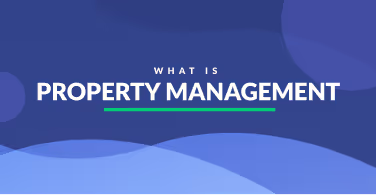In the world of real estate, there are countless terms that you need to be familiar with.
However, one of the most basic, and common, terms is the landlord.
Although it is such a common term, there can be some confusion around what a landlord does and what they are responsible for.
So, to clear up this confusion, we will be explaining exactly what a landlord is as well as everything they are responsible for.
We will also be providing some information on how to become a landlord.
To begin, let's talk about what a landlord is and some of their responsibilities.
What is a landlord?
A landlord is a property owner who leases their property to tenants who pay rent. Landlords have the potential to form great success if they manage their properties and assets correctly.
Now, although this sounds simple enough, it is actually a very complicated occupation, especially when you consider the many different things that landlords are responsible for.
In the next section, we will be explaining the many things that a landlord does and is responsible for.
What does a landlord do?
One of the most notorious characteristics of landlords is that they hold many responsibilities. It is important to know these responsibilities to avoid legal and logistical wrongdoings.
Below, we will be going over each one of the pre-referenced responsibilities and explaining why they are the keys to success for your rental property.
Budgeting
Landlords need to budget for all sorts of things, including the initial purchase of the property, property taxes, maintenance costs, and any future expenses pertaining to it.
If you do not budget accordingly, your tenants will suffer the consequences, which will in turn affect your income. This is especially true if you are not able to catch on to unpaid rent.
Lease agreements
Although drafting a lease agreement by yourself is not unlawful, it is not recommended.
Having a legal professional write your rental agreement will ensure your protection if your tenant breaches the contract.
Legally binding agreements are complicated to craft; contact a legal professional to ensure your protection under the law.
Maintenance
A well-maintained property is more than looks and aesthetics; it requires safety and functionality. Landlords should keep up with requested repairs promptly, ensuring a safe and habitable rental property.
Working carbon monoxide detectors, for example, are required in the state of Florida, so, ensure that your maintenance checklist is up to your state’s standards and abides by local laws.
Tenant screening
Once you are ready to rent out your property, tenant screening is an essential part of your role as a landlord.
Tenant screenings have helped many landlords secure good tenants.
Troublesome tenants can cause problems that can financially strain a landlord, so credit checks and eviction reports are especially important when choosing a tenant. Credit checks and eviction reports are essential in choosing a tenant.
Understanding landlord-tenant law
Becoming familiar with your state’s landlord-tenant laws can help avoid unnecessary legal conflict.
These laws vary by state, so ensure that you become familiar with your state's landlord-tenant laws and local landlord-tenant laws.
Also, abide by your state's fair housing laws.
Marketing
In order to find tenants, tenants also need to find you. Marketing your property can help you reach a large pool of prospective tenants and achieve just that.
Resources such as Trulia and Zillow Rental Manager are great listing websites that can help you attract renters. Although more costly, you can also contact a real estate agent.
On these sites, you will be able to upload pictures of your property, so make sure you take quality pictures to impress any potential tenants! They are also free to use, so take advantage.
So, now that we have discussed important landlord duties, we will discuss exactly how to become a landlord in the next section.
How to become a landlord
Being a landlord is a hard job that takes a lot of organization and responsibility, but it also is not as scary as it seems.
In order to become a landlord, you must first:
- Purchase a rental property
- Get the property tenant-ready
- Find the perfect tenant
- Finalize the lease agreement
If this sounds like a lot, your observations are spot on.
Below, we will be explaining each of these steps in detail and help ease the process for you.
Purchase a rental property
The most crucial and obvious step in becoming a landlord is to own rental properties, however, it is not as easy as it sounds.
When purchasing a rental property, you must ensure that it fits your budget and that it will bring you a good return on your investment, otherwise known as ROI. Also account for property value over time.
There are endless resources on Google that allow you to calculate the ROI of a rental unit. So, before purchasing, make sure that the investment is sound and that you won’t lose money on it.
Get the property tenant-ready
Oftentimes, properties will not be move-in ready right after purchase. Getting a property move-in ready entails many tasks.
You must perform your due diligence as a landlord and understand landlord-tenant laws on required amenities, such as functioning facilities and air conditioning.
In this step, you should also ensure that the property looks well-maintained, especially if you will be uploading pictures on listing websites.
Find the perfect tenant
Any landlord must understand the grand importance
A bad tenant can cause severe damage to the property and your assets. On the other hand, a good tenant will optimize your investment and make your life much easier.
The key to finding great tenants is to have a large pool of applicants to choose from, which is why listing your property is so important.
Also, ensure to run eviction, credit, and background checks as these can tell you a lot about your tenant’s rental history.
Interviews are also a great way to get initial impressions of your prospective tenant.
Finalize the lease agreement
As previously mentioned, it is important that you consult a legal professional to craft your rental agreement. We recommend that you revise the rental agreement with your tenant, as this avoids any gray areas and displays everyone’s role in maintaining the property.
After you revise the lease with your new tenant, also provide them with a copy. If there are any disputes or disagreements both you and the tenant will be able to quickly reach the document.
From there, you can collect the security deposit and begin the move-in procedures!
Frequently Asked Quesitons
What is a landlord?
A landlord is a property owner who leases their property to tenants who pay rent.





.svg)
.svg)

